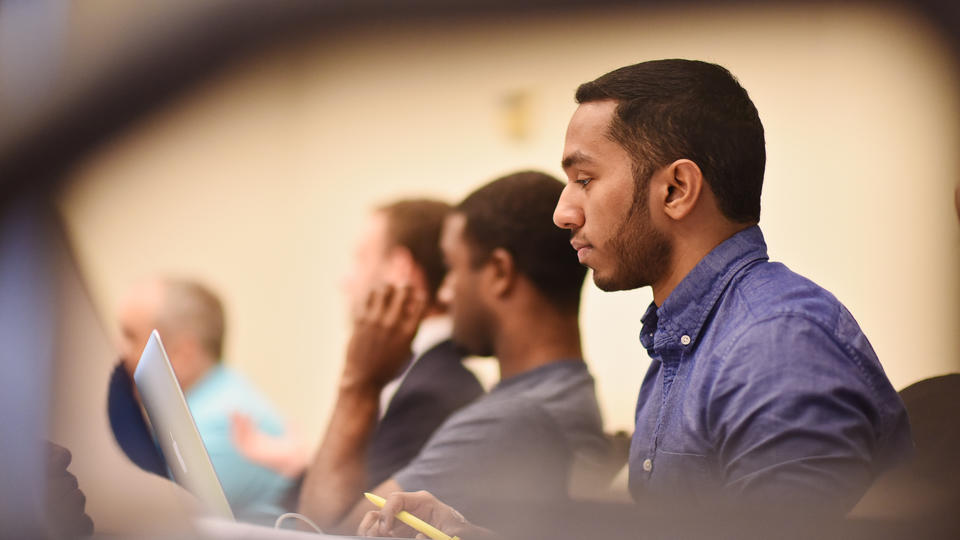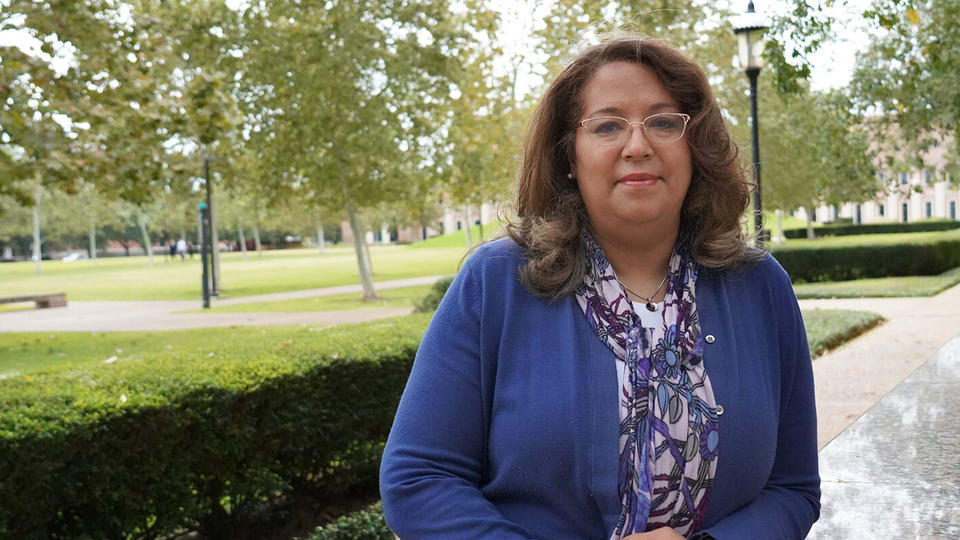Meet Brandon Johnson, MBA '22

Why did you choose Rice Business?
Rice Business is in the center of a world-class city booming in innovation and entrepreneurship. Choosing Rice was an essential step toward the actualization of my professional objectives. While earlier experiences equipped me, a Rice education served as the launching pad I need to understand international and cross-functional level business complexities. The school’s approach of cultivating intuition through courses in highly sought-after areas (such as Strategy in Technology Ecosystems) and other stages of the entrepreneurial process will help build my managerial and entrepreneurial acumen. Rice’s emphasis on limited class size brings a fantastic opportunity to interact with intelligent peers, world-renown faculty, and industry-leaders.
What are you most proud of from your time at Rice Business?
Participating in the OwlSpark accelerator was a life-changing experience that will forever elevate my business/startup acumen. The summer program challenged me to take my start-up from ideation to launch. In the program I was able to perform customer interviews, obtain advice from mentors, hear from current entrepreneurs, and other professionals in the startup ecosystem, who all helped shape my way of thinking about customers and scaling a business.
How has your Rice helped you in your career?
Rice Business’ #1 ranking in entrepreneurship is no coincidence. I came into this program as a small business owner and through multiple courses that introduces different routes of entrepreneurship, I realized I no longer wanted to be a “builder” going through the traditional startup journey, but an “opportunist” that wants to buy an existing business. While the buying process seems overwhelming, the professors were instrumental in guiding me through the selection, due diligence and transition processes via “hands on” experiences in and outside the classroom. Access to co-curricular resources such as the Lilie Lab – bringing entrepreneurs, innovators, and venture capitalist from various industries, offered opportunities to learn trailblazing practices and expand my professional network.
What advice would you give prospective students who are considering an MBA?
While business school could very well be the best next step, it is critical to engage in introspection — delving into the costs and benefits of an MBA. Doing so will help to clarify and ensure you can reap the rewards of whichever decision you make. Two questions an applicant should ask themselves when considering the MBA application Journey:
- What are your career goals?
- Connect the dots between what you have done in the past and what you would like to do in the future. While doing this, think about how an MBA fits into the picture (and how to use your existing professional network and future school network to help in this effort).
- What type of experience do you want from your B-School experience?
- Do you want the knowledge, skills, resources, and/or network? There is no general “right” answer – only what best fits your needs. As an example, I started my career as a small business owner with a business development background, but I knew I wanted to integrate technology into my firm and understand how to navigate the startup ecosystem. As an entrepreneur looking to pivot into venture capital, I acquired new skills and the cross-functional knowledge that I gain in business schools – in disciplines such as strategy, finance and operations – has been priceless. I was able to reach out to classmates and alumni for advice and be introduced to professionals who have been instrumental in my career pivot.
What do you think organizations should do better to build a diverse, equitable and inclusive environment?
Rice should engage in data collection and analysis to determine the need for change. Secondly, design and implement a strategy alongside current faculty, staff and alumni to match university objectives. Lastly, evaluate and audit the plan.
What suggestions do you have to work with allies within the workplace or at school?
Allies need to be educated and trained on microaggressions. Specifically, how they can intervene in the moment – this is a crucial part of allyship. But in addition to intervening, learn how to support people who experience microaggressions, systemic inequities and other barriers to opportunity. One way to combat microaggressions is providing “microafffirmations” where an ally can affirm someone’s identity; recognize and validate their experience and expertise; build confidence; develop trust; foster belonging; and support someone in their career. Microaffirmations can help mitigate and disrupt the harmful effects of historical oppression, systemic inequity, cultural marginalization and personal biases (Melinda Epler, 2021).


